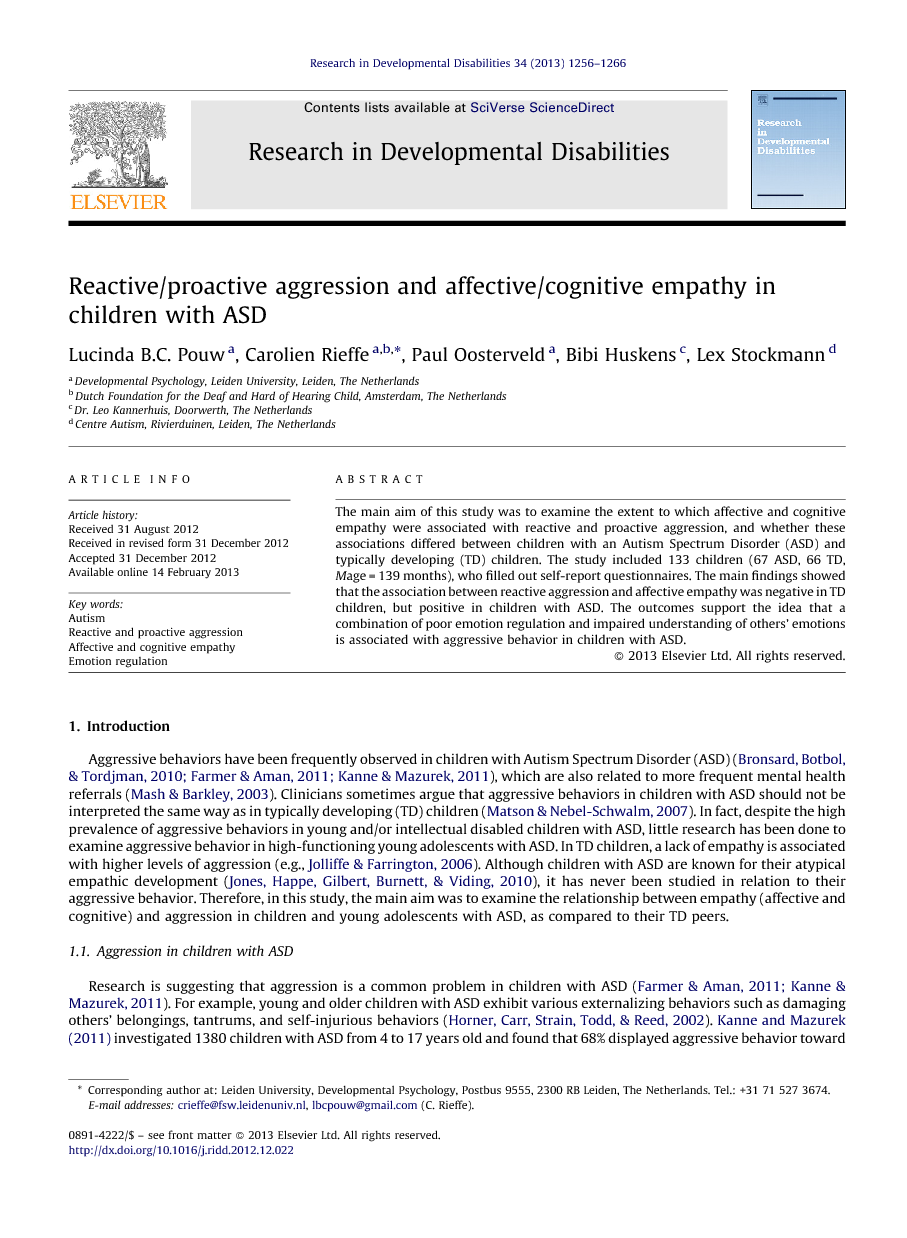ترجمه فارسی عنوان مقاله
پرخاشگری واکنشی/کنشی و شناخت عاطفی/احساس همدردی در کودکان مبتلا به ASD
عنوان انگلیسی
Reactive/proactive aggression and affective/cognitive empathy in children with ASD
| کد مقاله | سال انتشار | تعداد صفحات مقاله انگلیسی |
|---|---|---|
| 29840 | 2013 | 11 صفحه PDF |
منبع

Publisher : Elsevier - Science Direct (الزویر - ساینس دایرکت)
Journal : Research in Developmental Disabilities, Volume 34, Issue 4, April 2013, Pages 1256–1266
ترجمه کلمات کلیدی
اوتیسم - واکنش پذیری و خشونت پیشگیرانه - شناخت عاطفی و احساس همدردی - تنظیم هیجانی -
کلمات کلیدی انگلیسی
Autism,Reactive and proactive aggression,Affective and cognitive empathy,Emotion regulation,

